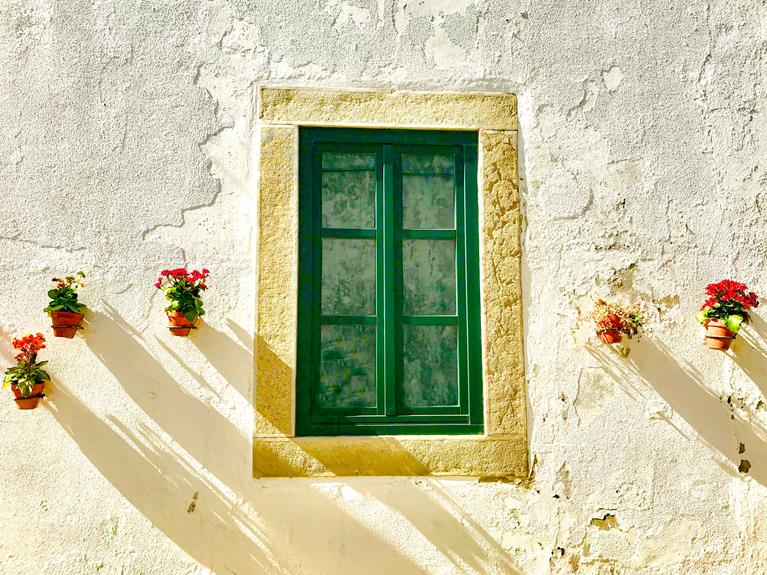Step into a world of enchantment as we uncover Algarve's timeless architectural gems in 2023.
Delve into the captivating history of Vilamoura's Old Town, where Roman ruins, centuries-old churches, and traditional Portuguese architecture transport you to a bygone era. Meandering through narrow, winding lanes, you'll discover charming boutiques and eateries that seamlessly blend the old with the new.
Immerse yourself in the past at the Cerro da Vila Museum and Archaeological Site, where well-preserved mosaic floors and ancient baths offer a glimpse into Algarve's Roman heritage.
As you explore the shops selling traditional crafts and savor the culinary delights, you'll be just moments away from the sun-kissed beaches of Vilamoura.
Join me on this unforgettable journey as we unearth the timeless charm of Algarve's architectural treasures in 2023.
Key Takeaways
- Vilamoura's Old Town is a cultural hub with Roman ruins, traditional Portuguese architecture, and street-side performances.
- The Cerro da Vila Museum and Archaeological Site in Vilamoura's Old Town offers a glimpse into Algarve's Roman heritage with well-preserved mosaic floors and ancient baths.
- Algarve's ancient castles, such as the Castle of Silves and Castle of Tavira, showcase stunning medieval fortresses and intricate stonework.
- Charming traditional villages in the region host vibrant festivals, offer mouthwatering traditional cuisine, and highlight the craftsmanship of local handicrafts.
Historical Landmarks in Algarve
As an avid explorer, I'm fascinated by the double preposition in Algarve's historical landmarks. These architectural gems not only showcase the rich history of the region but also provide a glimpse into the vibrant Portuguese culture.
One such landmark is Vilamoura's Old Town, a treasure trove of Roman ruins, centuries-old churches, and traditional Portuguese architecture. Walking through its narrow streets feels like stepping back in time, surrounded by the remnants of a bygone era.
The Cerro da Vila Museum and Archaeological Site, located in the heart of the Old Town, offers a unique opportunity to delve into the town's Roman heritage. With its well-preserved mosaic floors and ruins of baths, the museum provides a fascinating insight into the lives of the ancient inhabitants.
The Old Town also exudes a lively cultural atmosphere, with shops selling traditional Portuguese crafts, art galleries showcasing the works of local artists, and street-side performances by talented musicians.
Immerse yourself in Algarve's heritage and experience the allure of its historical landmarks.
Architectural Wonders of the Region
I discovered a multitude of architectural wonders in the Algarve region, each one captivating in its own unique way. Here are five remarkable examples that showcase the rich cultural heritage of the area:
- The Roman ruins at Cerro da Vila Museum and Archaeological Site take you back in time with their well-preserved mosaic floors and ruins of ancient baths. Walking through these ancient ruins is like stepping into a different era.
- The centuries-old churches found in Vilamoura's Old Town are architectural masterpieces. From their intricate facades to their ornate interiors, these churches are a testament to the region's religious history.
- Vilamoura's Old Town itself is a treasure trove of traditional Portuguese architecture. Its narrow, winding lanes and charming buildings transport you to a bygone era, making you feel like you've stepped into a postcard.
- The traditional Portuguese crafts sold in the shops of the Old Town are a delight to behold. From handcrafted ceramics to intricately woven textiles, these artisanal creations are a testament to the region's craftsmanship.
- Lastly, the street-side performances by local musicians in the Old Town add a touch of magic to the atmosphere. The soulful melodies and lively rhythms bring the architectural wonders to life and create an unforgettable experience.
These architectural wonders of the Algarve region aren't just buildings; they're gateways to the past, windows into history, and reminders of the region's cultural heritage.
Exploring Algarve's Ancient Castles
Continuing our journey through the architectural wonders of the Algarve region, let's now delve into the enchanting realm of Algarve's ancient castles.
The Algarve is home to a wealth of medieval fortresses, each with its own unique story to tell. These fortified towns stand as testaments to the region's rich history and offer a glimpse into the past.
Wander through the castle ruins and imagine the battles that once took place within their walls. Marvel at the intricate stonework and marvel at the architectural prowess of the time.
From the stunning Castle of Silves, perched high atop a hill, to the majestic Castle of Tavira, overlooking the town and the Gilão River, these ancient castles will transport you back in time and leave you in awe of their grandeur.
Algarve's Charming Traditional Villages
One of the most captivating aspects of exploring the Algarve region in 2023 is discovering the numerous charming traditional villages scattered throughout the area. These villages offer a unique glimpse into the rich cultural heritage of the region, with their quaint cobblestone streets and traditional Portuguese architecture.
Here are five things that make these villages truly special:
- Traditional Village Festivals: Experience the vibrant energy of local festivals, where the entire village comes together to celebrate with music, dance, and traditional costumes. These festivals are a testament to the strong sense of community and pride in local traditions.
- Local Gastronomy: Indulge in the mouthwatering flavors of traditional Algarvian cuisine, with fresh seafood, hearty stews, and delectable pastries. These villages are home to charming restaurants and cozy cafes that serve up authentic dishes passed down through generations.
- Traditional Handicrafts: Discover the skill and artistry of local artisans as they create beautiful handmade crafts. From intricate pottery to delicate lacework, these traditional handicrafts showcase the region's craftsmanship and attention to detail.
- Warm Hospitality: Experience the warm and welcoming nature of the villagers as they open their doors to visitors. Whether it's a friendly conversation or a warm smile, the locals make you feel like part of the community.
- Serene Beauty: Immerse yourself in the tranquil beauty of the villages, surrounded by rolling hills, lush vineyards, and picturesque landscapes. These villages offer a peaceful escape from the hustle and bustle of modern life, allowing you to reconnect with nature and find inner peace.
Exploring Algarve's charming traditional villages is a truly enriching experience, where you can immerse yourself in the region's rich cultural heritage, indulge in delicious cuisine, and witness the skill of local artisans.
Hidden Treasures of Algarve's Historical Sites
As I explore the Algarve region in 2023, I'm amazed by the abundance of hidden treasures found within the historical sites.
The Algarve is known for its rich heritage and history, and preserving this heritage is of utmost importance. Ancient ruins dot the landscape, providing a glimpse into the region's past. From Roman baths to mosaic floors, these archaeological discoveries offer a fascinating insight into the lives of the people who once inhabited these lands.
The Cerro da Vila Museum and Archaeological Site in Vilamoura's Old Town is a prime example of this, showcasing the remains of a nobleman's villa and its beautifully preserved mosaic floors. Exploring these sites is like stepping back in time, immersing oneself in the rich tapestry of the Algarve's history.
It's a truly remarkable experience that shouldn't be missed.



